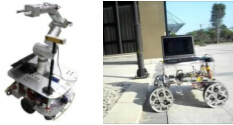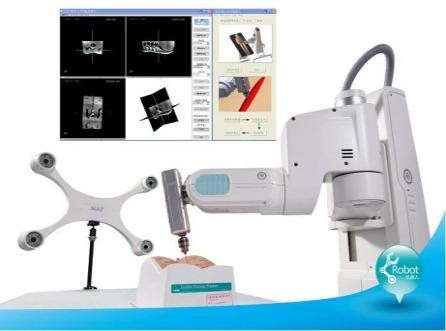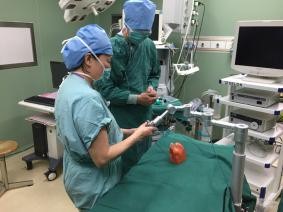[1] Fundamental theories and key technologies of task-oriented service robot
The objective of this project is to improve the autonomy, the adaptation, and the intelligence of robotic system in complicated dynamic environments. Special focuses are on task planning and fine operations for service robots, the construct of cognitive control architecture based on experience and learning and the development of ROS-based intelligent mobile robot platform.

Mobile Robot
[2] Robotic spinal surgical system
Spine surgery is regarded as one of the most high-risk surgeries due to its high requirement of the accuracy and stability. The Robotic Spinal Surgical System (RSSS) can assist surgeons in performing laminectomy operation, pedicle screw insertion etc. Collaborated with Beijing Jishuitan Hospital, three generations of RSSS have been developed, and animal experiments have been completed.

Robotic Spinal Surgical System
[3] Endoscopic sinus surgical robot
Minimally-invasive Endoscopic Sinus Surgeries are mainly used to treat Nasosinusitis, Nasal polyps, and Carcinoma of nasal cavity and sinuses with the possible extension to treating the orbital, lacrimal duct and anterior skull base diseases. During the complicated nasal surgeries, at least one assistant is needed to hold the endoscope, leading to many problems like spatial crowdedness, difficulty in cooperation, poor stability, etc. Thus, it is urgent to introduce robots which hold the endoscope to assist the surgeons in conducting complicated surgeries with the best distance and angle.

Ex-vivo Experiment in Peking University 3rd Hospital
